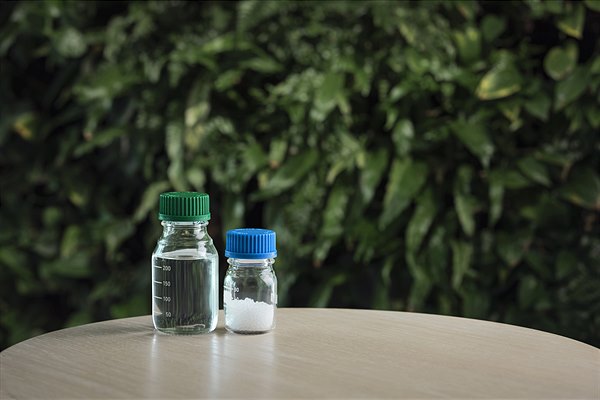 Borealis to produce polypropylene from renewable raw material with Nestes renewable propane by end of 2019
Borealis to produce polypropylene from renewable raw material with Nestes renewable propane by end of 2019
Borealis, a leading supplier of innovative polyolefin solutions, and Neste, the world's leading supplier of sustainable renewable diesel, renewable aircraft fuel and expert in providing drop-in solutions for renewable chemicals, have entered into a strategic collaboration to produce polypropylene (PP) from renewable raw materials. As a result of the collaboration, Borealis Nestes will use 100% renewable propane produced with Neste's NEXBTL™ technology as a renewable raw material at its Kallo and Beringen, Belgium sites from the end of 2019.
Borealis and Neste: a milestone for renewable polypropylene
As an industry leader in sustainability, Neste provides bio-based alternatives to conventional fossil raw materials for the production of polymers and chemicals. Neste has an annual production capacity of 3 million tons of renewable products. Thanks to its proprietary NEXBTL™ technology, the company can use virtually any bio-based oil or fat as a raw material - including low quality waste and residual oils - to produce a range of high-quality renewable products. Borealis will use Nestes renewable propane produced in Rotterdam at its facilities in Belgium to develop a whole range of applications based on renewable PP. This is the first time that Borealis is using bio-based raw materials to partially replace fossil raw materials in industrial PP production. In addition, it will also be the first time that dehydrogenation of renewable propane is carried out on an industrial scale. The high quality product will have the same excellent product properties as conventional PP and is fully recyclable.
Borealis' unique propane dehydrogenation (PDH) plant and PP plant in Kallo will enable the company to offer biobased propylene, and ultimately biobased PP, whose biobased ingredients can be physically verified and measured. In addition, Borealis will continue to use the mass balance approach in its production in Kallo and Beringen to take a major step forward and offer both renewable propylene and renewable polypropylene to its customers. The process is certified by ISCC Plus (International Sustainability & Carbon Certification), which ensures that the renewable raw materials used along the entire value chain are certified as renewable, sustainably produced and traceable back to their point of origin.
"The use of renewable raw materials, mainly derived from waste and residual material streams, is an important contribution to reducing our dependence on fossil fuels," explains Lucrèce Foufopoulos, Borealis Executive Vice President Polyolefins, Innovation & Technology and Circular Economy Solutions. "By working with Neste, we can offer our customers and partners a new portfolio of renewable PP solutions that will help them make their offerings more climate-friendly. In line with our EverMinds™ approach, we are a pioneer in building a recycling economy for plastics. Borealis will not only contribute to the protection of the environment, but also build a sustainable company".
"The polymer and chemical industries will play an important role in the fight against climate change. It is therefore very gratifying that the industry is beginning to switch to more sustainable, climate-friendly raw material alternatives. We are striving to support pioneering companies like Borealis in replacing fossil raw materials with renewable ones. This new step is a significant contribution to creating a healthier planet for our children," said Mercedes Alonso, Executive Vice President, Renewable Polymers and Chemicals, Neste.
"With Borealis committed to expanding its range of recycled plastics, it's nice to see Borealis gradually shifting from its core fossil resources to renewable alternatives," says Sander Defruyt, head of the Ellen MacArthur Foundation's New Plastics Economy initiative. This goal is in line with Borealis' vision of a plastics recycling economy, which it has supported since joining the New Plastics Economy Global Commitment. In a recycling economy, plastics never become waste, and plastics production shifts from a model dependent on the extraction of finite fossil resources to a model based on a cycle of materials. By expanding the production of renewable plastics, Borealis and Neste are actively supporting the transition to a plastics recycling economy.
www.borealis.com


















































































